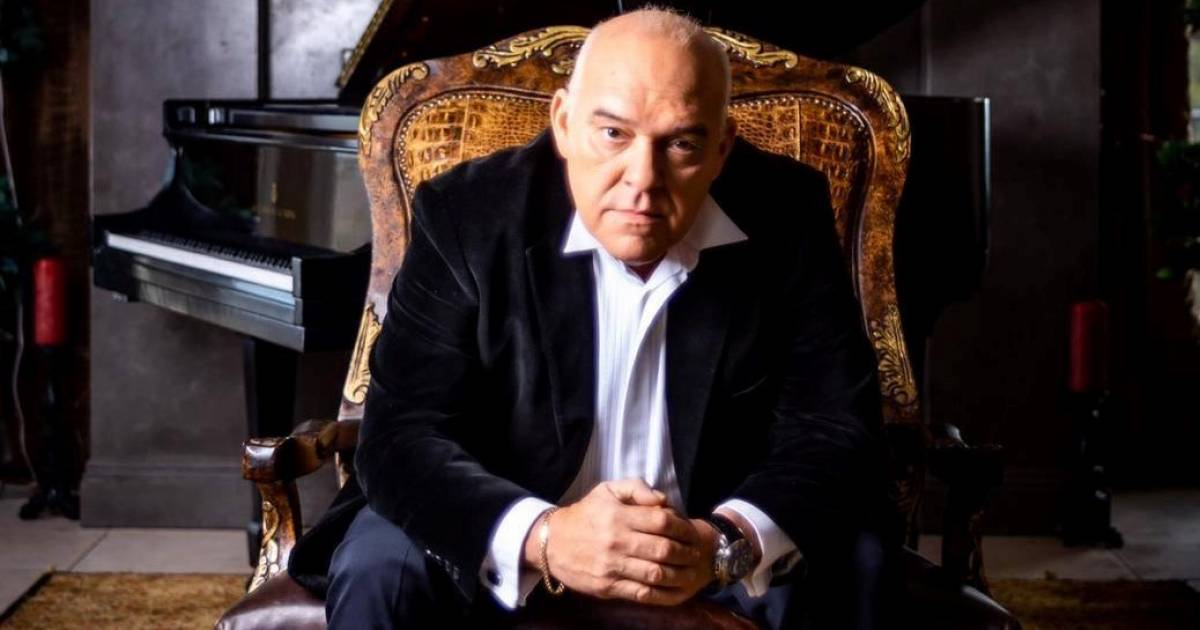Renowned baritone and founder of the community project Opera de la Calle, Ulises Aquino Guerra, has voiced his criticism of the Cuban government's inability to tackle pressing issues such as the economic downturn, frequent power outages, and widespread hopelessness. He emphasized the need for "radical ideopolitical changes" to address these challenges effectively.
Aquino shared his thoughts on Facebook under the post titled "Let's Talk Solutions," stating, "Even if we blame the U.S. embargo or all maneuvers against the Cuban government, our situation is so critical that without significant ideopolitical changes, no short or medium-term solutions are in sight."
He argued for the complete liberation of productive forces, free from the constraints imposed by conservative factions and the "timid" reforms attempted thus far, criticizing the stagnation within the communist party's leadership. Aquino warned that the crisis extends beyond economics, affecting Cuban demographics, sociology, and psychology, leaving citizens without a present and even less of a future.
He also condemned the state's demagoguery, referring to official analyses on programs like "Mesa Redonda," which he claimed offer superficial solutions while places like Holguín suffer from power cuts and numerous hardships. His comments were in response to the April 25th televised appearance of Holguín's governor, Manuel Francisco Hernández Aguilera, who suggested that in Cuba, reality is measured not in numbers or facts, but through propaganda and slogans.
Aquino urged for "truth" and "boldness" in confronting the crisis, highlighting that continued inaction only deepens the debt to the people and jeopardizes Cuban identity. He declared that nothing should supersede the right to life.
Additionally, he called for a "revolution of thought" to dismantle the bureaucracy and stigmas that hinder the nation's progress, advocating for the freedom to construct, create, trade, invest, and develop without fear or limitations. "We all have the right to express dissatisfaction because there has been ample time to find solutions. Isolating ourselves and turning against one another will not resolve anything," Aquino concluded.
Born in Havana in 1963, Ulises Aquino Guerra is an acclaimed baritone, promoter, and theater director, celebrated as one of the world's leading voices in operatic singing. His performances in operas, zarzuelas, and operettas highlight his versatility and vocal prowess.
On April 28, 2006, he established Opera de la Calle, a community art project that once boasted 80 members and an opera for children with 120 participants. According to Ecured, the company had diverse revenue sources, with the artistic side subsidized by the state through the National Council of Performing Arts and other income from its autonomy as a business.
As one of the most outspoken Cuban artists, Aquino has criticized the regime's measures that have accelerated poverty and mass migration from the island over recent years. In August 2012, the Havana government revoked Aquino's licenses to operate the restaurant El Cabildo, the base of Opera de la Calle, where he staged musical and dance shows blending opera, zarzuela, rock, and Cuban rhythms.
Insights into Cuba's Current Crisis
What are the main issues Ulises Aquino highlights in Cuba?
Ulises Aquino highlights the economic crisis, frequent power outages, and a general sense of hopelessness among the Cuban population as key issues that the government has failed to address.
What solutions does Aquino propose for Cuba's crisis?
Aquino advocates for radical ideopolitical changes, including the complete liberation of productive forces without conservative constraints, and a revolution in thought to eliminate bureaucratic obstacles and stigmas.
Why does Aquino criticize the Cuban government's response to the crisis?
Aquino criticizes the government's reliance on propaganda and superficial solutions, as seen in official analyses and televised appearances, which fail to address the deeper issues affecting the Cuban people.
